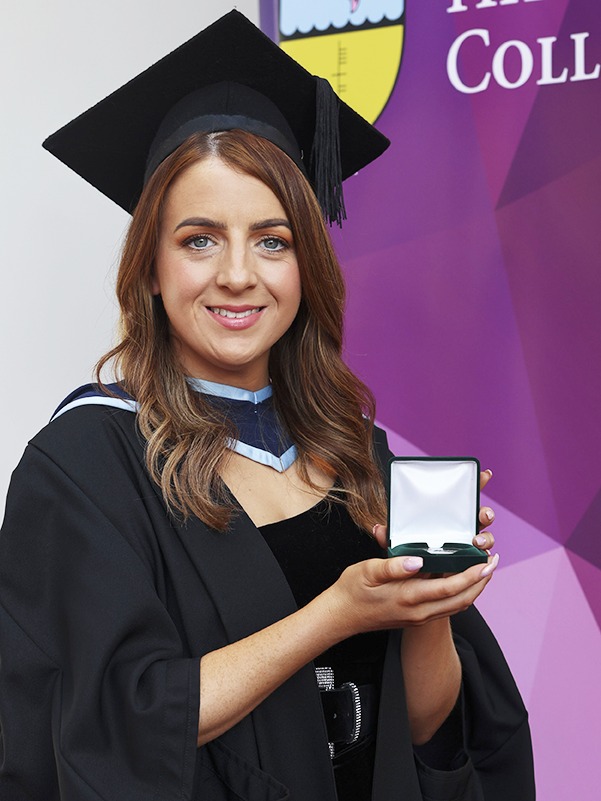
Alumni profile
Siobhán O’Donnell
Location
Donegal
School
Scoil Mhuire, Doire Beaga
Education
Bachelor of Arts in Irish and Linguistics
Awards
Hibernia College Religious Education Award
Why did you choose teaching and why Hibernia College?
I decided that I wanted to become a teacher after spending some time working in various summer camps. This experience had a significant effect on me as it uncovered my love of working with children, and it prompted me to reflect on how passionate I am about children’s wellbeing and education. I realised that teachers have the opportunity to motivate and encourage children to reach their full potential all year around, and I couldn’t think of a more rewarding profession to pursue, so I went for it. I chose Hibernia College as it provided me with the flexibility to study remotely. I also found Hibernia College appealing as it allowed me to work and gain experience as a part-time substitute teacher while studying to gain my qualification and reach my goal of becoming a primary school teacher.
What field of work or study were you in before you started your PME?
Before Hibernia College, I studied Irish and Linguistics in University College Dublin. I was born and raised in the Gaeltacht of Donegal, so I have always had a passion for our native language. I now place this passion into my teaching, and I hope to instil a love for the language in my future students. Mar a deir an seanfhocal, ‘An rud a chíonn an leanbh is é a níonn an leanbh’.
Can you tell us a bit about your research project and why you focused on this area?
The title to my research topic is The barriers to inclusion for children with autism in mainstream classrooms. I grew an interest in the complexity of the autistic spectrum disorder while touching on the topic of linguistic disorders in my undergraduate programme. However, it was during my time on school placement and substitute teaching in various schools that I got to witness the day-to-day challenges that children with autism face while moving through the education system. I also noticed that the inclusion of children with autism in mainstream classrooms was more common now than ever, yet there were still some evident barriers to inclusion for such children in the mainstream classroom. I decided to research and focus on the main barriers to inclusion for children with autism in mainstream classrooms so that I could become more knowledgeable on how to tackle them. I believe that my research has equipped me with the skills to recognise and overcome such barriers to inclusion, which will in turn support children with autism who are under my care during my teaching career.
Now that you have graduated, what are your plans?
Since graduating, I have been fortunate enough to get a job as an EAL teacher and learning support teacher for the current year. I am currently supporting 20 amazing young children from Ukraine, and I am thoroughly enjoying this worthwhile and rewarding role. It has not only given me the opportunity to use the skills that I gained during the PME, but it has also given me the opportunity to learn, develop and grow as a newly qualified teacher. I also plan to begin the Droichead process, which will help me further develop my teaching skills and move on to the next step of my teaching career.
What piece of advice would you give to any person considering starting a PME?
I would advise anyone thinking of starting the PME to sign up for one of the PME information online webinars. I attended two information webinars before beginning the course, and I found them really informative as they included honest reviews and presentations from Hibernia College graduates and valuable information from experienced teachers. You also have the opportunity to get any queries you may have answered, and they provide you with an overall idea of what is involved in the PME.